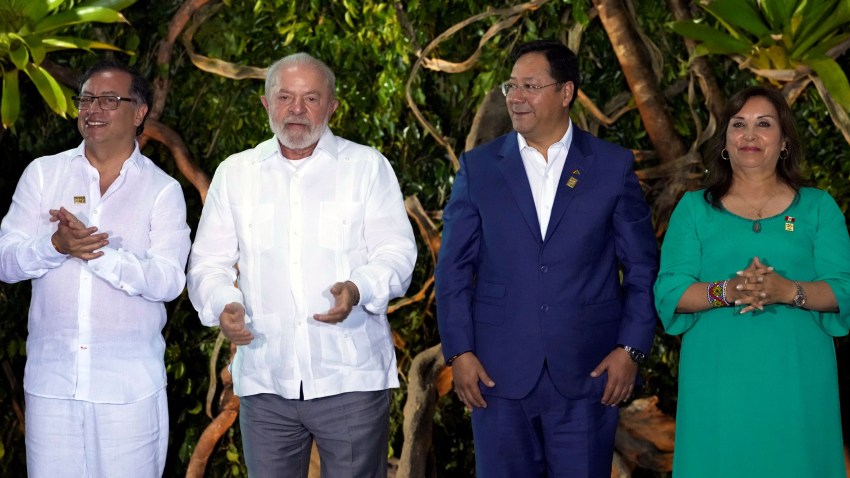Reducing deforestation in the Amazon is good policy, but as last week’s summit of the Amazon Cooperation Treaty Organization demonstrated, it can make for difficult politics. Convened by Brazilian President Luiz Inacio Lula da Silva, the meeting in Belem, Brazil, brought together leaders and representatives of the other countries that share the Amazon—Bolivia, Colombia, Ecuador, Guyana, Peru, Suriname and Venezuela—to begin a dialogue about regional solutions to deforestation. But instead of arriving at common understandings, the summit exposed divisions in South America on a topic that is high on the international environmental agenda.
On one extreme of the South American left is a group of energy nationalists, such as Venezuelan President Nicolas Maduro, who are eager to exploit their countries’ oil and mineral reserves without any concern for the environment. On top of presiding over Venezuela’s political and economic decline, Maduro has overseen a regime of serious environmental damage that will take the country decades to recover from. Even though Venezuela’s oil industry massively underproduces from its current wells, largely due to underinvestment and deferred maintenance, Maduro wants to keep open the possibility of drilling in the Amazon as a way to increase production in the future. Similarly, Bolivian President Luis Arce has allowed an enormous increase in deforestation, while maintaining the policies of his predecessor, former President Evo Morales, of authorizing energy projects in Indigenous areas. In addition, Arce has failed to crack down on illegal mining and coca cultivation, which add to the Bolivia’s deforestation problems.
Both Maduro, who did not attend the conference in person, and Arce continue to resist any pledge to halt deforestation by 2030, something to which the other countries at the conference have already agreed. Their resistance, which was dressed up in rhetoric about sovereignty and anti-imperialism, resulted in the Belem summit’s joint communiqué being watered down and prevented Lula from demonstrating a united regional front on the issue to international donors.

